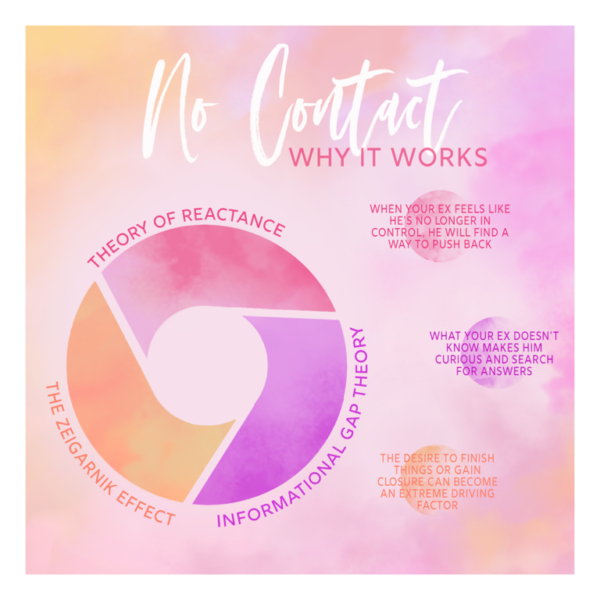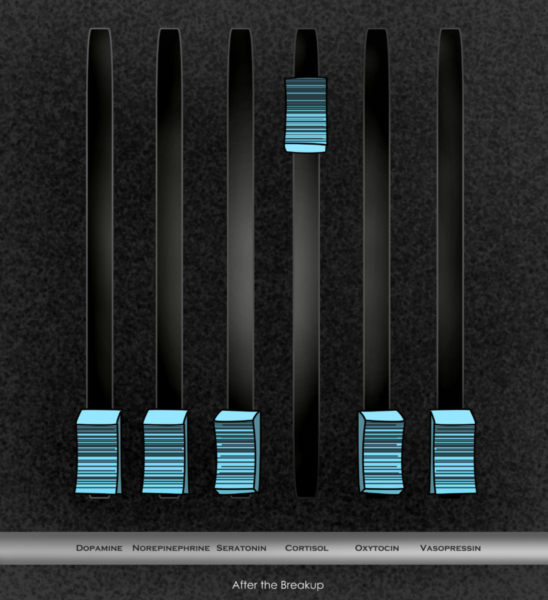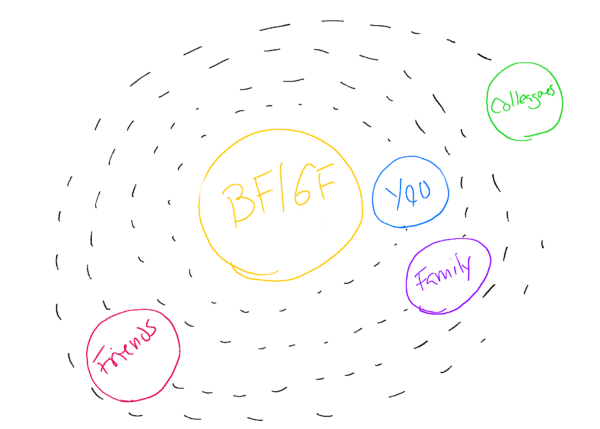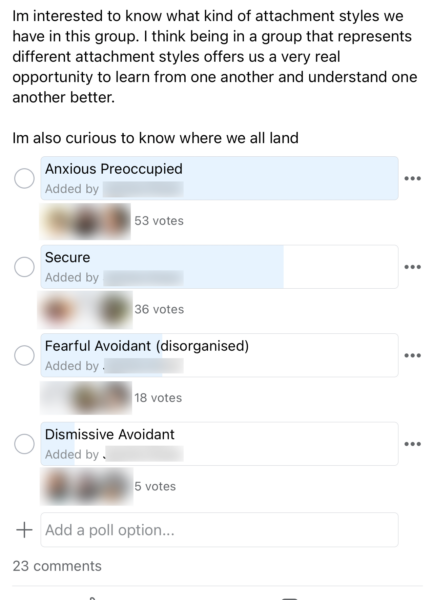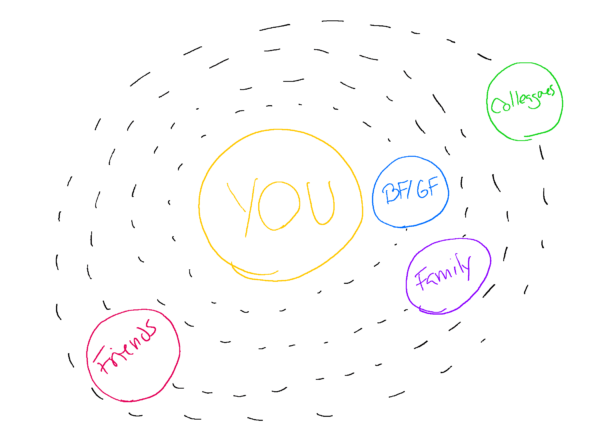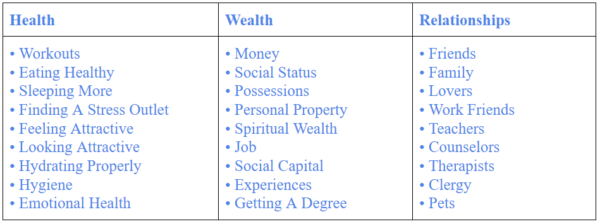Today we’re going to talk about how to let go of an ex you still love.
I believe that one of the most often ignored facets of this equation is the existence of a dual purpose.
A significant number of people who visit Ex Boyfriend Recovery are not necessarily focused on “letting go of their ex” per say… they are more interested in winning them back.
However, one of the biggest lessons I’ve learned over the years of interviewing success stories – people who have used our program or coaching to reunite with their exes – is that the secret to getting an ex back often lies in outgrowing them.
So, many of the strategies I’ll be discussing in this article serve a dual purpose.
They can not only assist in wholly helping you to let go of your ex but they can also create a context that makes you a more appealing partner to an ex if you wish to reignite the spark.
In total, we’ll be discussing six key points today.
- The Indefinite No Contact Rule
- Blocking Them On Social Media
- Doing A Solar System Audit
- Finding Something You Care More About Than Them (Not A Relationship)
- Going On Dates Statistically Works
- Creating An Ideal Support System
Let’s begin from the top.

What Are Your Chances of Getting Your Ex Boyfriend Back?
Take the quizTip #1: The Indefinite No Contact Rule
When I initially embarked on this journey in 2012, Google felt somewhat akin to the Wild West.
I remember entering a breakup-related search and literally finding a soccer website ranked among the top search results.
(Pretty sure it was some big soccer star (or footballer) who went through some massive breakup.)
Anyways, many of the articles I wrote about the no contact rule ranked pretty highly as well.
(I miss those days.)
Yet, change is the one inevitability in life and, over time, the competition intensified, and the concept of the no contact rule became common knowledge.
Now, it seems like everyone is extolling the virtues of the no contact rule in the aftermath of a breakup, a notion that undoubtedly holds true today.
But if your primary goal is to let go of your ex, the standard no contact rule might not be the most effective strategy.
Instead, I suggest transitioning to an indefinite no contact rule, essentially cutting off all communication with your ex. The intention here is never to interact with them again.
The rationale behind this approach is rooted in understanding the physiological changes that occur in your body during a breakup.
Going through a breakup triggers a variety of responses in your body, one of the most notable being a surge in cortisol levels, often referred to as the stress hormone.
This is particularly pertinent as under normal circumstances, cortisol levels typically stabilize within a few minutes to a few hours following a stressful event.
The exception occurs when you find yourself in situations that constantly trigger cortisol spikes.
Often, communicating with an ex can induce these spikes, leading to a continuous state of stress.

What Are Your Chances of Getting Your Ex Boyfriend Back?
Take the quizThis can be problematic as prolonged stress keeps cortisol levels elevated, potentially for as long as six months.
This is one reason why many people struggle during the post-breakup period.
Tip #2: Blocking Them On Social Media
Yep, I’m not pulling any punches today.
And to really piggyback off of what I was saying with cortisol, I actually think today’s day and age is actually the most difficult day and age ever to go through a breakup.
I mean, can ou imagine what it was like maybe a hundred years ago to go through a breakup when the ideal way of communicating with someone was through letters?
- You didn’t have to see what your ex was up to back in those days.
- You would send a letter if you wanted to talk to them.
- You know, there was no text messages.
- There was no smartphones.
Nowadays, the multitude of distractions and reminders, coupled with the way social media algorithms are designed to keep you engaged, exacerbate the issue.
To recall our earlier conversation about cortisol, if your cortisol levels are elevated and you’re incessantly checking social media to see what your ex is doing, the social media platforms will identify your interest in a particular profile and feed you more of that person’s content in an effort to prolong your stay on their platform.
There was a really great piece done by “Better Ideas,”
I’d recommend you watch that video to see how terrifying those algorithms are.
This is a fundamental aspect of how social networks operate, but it doesn’t help when it comes to managing your cortisol levels.
Often, we’ve found that individuals in the post-breakup phase struggle to maintain their self-control.
That’s why I believe it might be wise to block your ex on social media. This step could help your cortisol levels to stabilize.
Of course, you always have the option to unblock them at a later date.
However, if you choose to adhere to the indefinite no contact rule as previously suggested, perhaps you won’t be unblocking them. It might be a clean break across the board.
Tip #3: Doing A Solar System Audit
This concept is especially relevant for individuals who may exhibit codependent tendencies.
Something my wife and I have been doing a TON of research on lately.
One of the primary concepts I frequently discuss on Ex Boyfriend Recovery is the analogy of comparing your love life and your sphere of influence to a solar system.
In this analogy, either you or your ex is at the center of your solar system.
Conducting an audit essentially means introspecting and determining who had control over your life.
We’ve observed a correlation between anxious attachment style and codependent tendencies. Those with codependent tendencies often crave attention from others and might not have many original ideas or thoughts, leaving them feeling somewhat suppressed.
I bring this up because a majority of the people we’ve assisted through our program exhibit anxious tendencies, and we often see codependent issues within their relationships.

What Are Your Chances of Getting Your Ex Boyfriend Back?
Take the quizRecognizing that you might have been in a codependent relationship where your needs weren’t prioritized is crucial.
The best way to do this is to assess who was at the center of your life.
Ideally, you want others to revolve around you, or at least have an equal partnership within someone else’s solar system.
However, we often find that you’re orbiting your ex’s sun, and when your ex no longer wants you, being ejected from that solar system can be quite painful.
Recognizing if you have codependent tendencies will pave the way for the next step, which is effectively addressing these tendencies.
Tip #4: Find Something You Care About Just As Much As Your Ex
The next step involves identifying something you care about more than your ex.
I frequently refer to a concept I’ve termed the ‘Holy Trinity’ on our website.
This concept involves dividing your life into three distinct sectors:
- Health
- Wealth
- Relationships
The objective is to encourage you to shift your focus from your ex by setting overarching goals for each category.
- Ideally, you would have a major goal for health; for some, this might be running a marathon, while for others, it could be reaching a specific weight loss target.
- Your wealth goal typically revolves around financial aspirations, such as earning a certain annual income.
- Finally, relationship goals can vary greatly depending on your current relationship status – whether you’re dating, in a committed relationship, or married.
However, if you notice codependent tendencies and are struggling to let go of your ex, it can be beneficial to find a significant goal that you care about as much as them.
Importantly, this goal should not fall within the romantic or relationship category of the Holy Trinity; it should belong to another area.
What you’re ideally looking for is a ‘magnum opus’ type of goal, something that inspires you to rise and shine each day, such as a dream job. The primary aim is to shift your focus away from your ex.
As I mentioned, most of our clients tend to have anxious attachment styles, which often leads to them being problem solvers.
They aim to fix issues.
My advice to many clients is to channel that anxious energy that’s currently directed towards resolving the breakup towards achieving a significant personal goal.
In essence, find something you care about more than your ex that doesn’t fall within the relationships category.
Tip #5: Going On Dates Statistically Works
I didn’t give this much thought until I conducted an interview with one of our success stories, Jamie Cantrell.
I’ll provide a link to that interview below.

What Are Your Chances of Getting Your Ex Boyfriend Back?
Take the quizJamie emphasized the impact of dating other people; despite initially struggling, she approached it as a routine and consequently gained more confidence.
Intriguingly, research supports this.
A recent study published in Sage Journals, a highly respected source for academic publications, discovered that
People who quickly moved on to new partners—rebounded—reported increased self-esteem, improved well-being, and decreased anxiety. Interestingly, those who rebounded quickly were often more insecure.
A BBC article I read further backed this up by saying,
“quick rebounds also tend to be people who had issues with insecurity in their previous relationship.” It might appear contradictory that those who feel insecure also have higher self-esteem. However, it could be a result of gauging feelings of insecurity in a relationship that’s coming to an end—a logical reaction if you sense that things are not going well—and then measuring subsequent growth and self-esteem after finding a new partner.”
I initially had difficulty understanding this point, so I spent a good deal of time breaking it down.
To the best of my ability this is what I think it’s trying to argue,
In the context of romantic relationships, a “quick rebounder” refers to a person who quickly moves into a new relationship after their previous one ends. The statement we’re trying to dissect suggests that people who tend to rebound quickly are also often people who experienced insecurity in their prior relationship. This might be because the person felt uncertain or anxious about their partner’s feelings, their own role in the relationship, or the relationship’s future.
Now, the paradoxical part of this statement is the idea that these people, despite feeling insecure in their past relationship, might actually have higher self-esteem after entering a new relationship quickly.
The key to understanding this paradox lies in understanding the difference between “insecurity” and “self-esteem”. Insecurity in this context pertains to the uncertainties and anxieties within a specific relationship, while self-esteem is a broader measure of how a person views their own worth or value, which can extend beyond the confines of a relationship.
In a failing relationship, it is quite normal for a person to feel insecure, as the circumstances might make them question their partner’s feelings, the viability of the relationship, or their own worthiness. However, when this relationship ends and the individual quickly finds a new partner, they may interpret this as a validation of their desirability or worthiness, leading to an increase in self-esteem.
In other words, the insecurity they felt was specific to the doomed relationship, while their self-esteem gets a boost from quickly finding a new relationship, which they interpret as a broader affirmation of their worth. Therefore, it might seem contradictory at first, but it is actually logical when you consider the different contexts in which insecurity and self-esteem are experienced.
Reflecting on what Jamie shared about forcing herself to go on dates and subsequently gaining a lot of confidence, we can derive an important lesson from the statement given by the BBC.
The attention she received from other people and the act of dating them validated her self-worth.
She realized she had more value than what her ex had attributed to her.
Yet, often you need external confirmation to fully embrace this belief, because if the thought is internal, especially when you’re in a failing relationship, it can trigger considerable insecurity.
What Jamie discovered is that dating other people can offer the confidence boost necessary to bolster other areas of your life.
Tip #6: Creating An Ideal Support System
This is an aspect that many individuals often overlook, despite it being the most crucial element of everything I’ve discussed today.
Even if you ace the confidence aspect, adhere perfectly to the indefinite no contact rule, block your ex on social media, conduct a solar system audit and the like, if you lack a robust support system, you’ll typically lack the accountability necessary to see things through to the end.
So, what does an effective support system look like?
In my opinion, you need two elements.
- A BFF
- An Accountability Community
Let’s start first with the BFF.
Your BFF
A best friend or a confidant, someone who will unwaveringly stand by your side and offer support, even if they don’t necessarily agree with your decisions.
Many individuals who approach me, who enter our program, are striving to win back their exes.
Often, their friends and family—their steadfast confidants—are not in favor of them trying to reclaim their exes. At times, these friends are right; one should not attempt to rekindle a relationship with someone who’s abusive or narcissistic, and we’ve established preventative measures in our program to avoid such scenarios.
However, what you’re ultimately seeking is support: someone who will lend an ear, provide advice when required, and avoid meddling in your affairs.
But if you’re lacking such a person, where do you turn?
Well, generally, you need some form of an accountability community.
The Accountability Community
What do I mean by that?
By accountability, I’m referring to surrounding yourself with individuals who not only understand your circumstances but will also keep you accountable when you feel like deviating from the indefinite no contact rule or when you start obsessing over your ex’s actions or their new romantic endeavors.
These individuals are there to ensure you stay true to your mission of letting go.
You can find such an accountability community in various places.
- Admittedly, I have a bias towards our own community as we specialize in breakups.
- Nonetheless, Reddit or your group of friends can serve the same purpose.
- Sometimes, it could even be your parents.
But, on the whole, the most effective accountability communities are those that comprise individuals who understand your situation, are going through a similar experience, and are willing to assist and hold you accountable.
What’s remarkable about our community is the layered support system.
Not only do we have a layer of accountability, ensuring you have a supportive crowd around you, but we also provide a platform for making a best friend.
We employ a ‘battle buddy’ system where we aim to partner you up with individuals who are experiencing the same situation as you, thus providing you with a clear path forward.
So, if you don’t have a support system, be it ours or a Reddit group or a forum, I strongly encourage you to seek one out.
